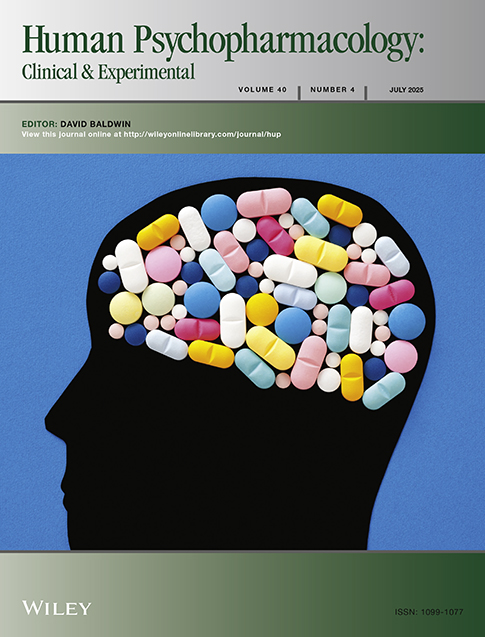Fluvoxamine versus fluoxetine in major depressive episode: a double-blind randomised comparison
Abstract
A double-blind, multinational study was conducted to compare the efficacy and safety of fluvoxamine and fluoxetine in outpatients with major depressive episode; 184 patients were randomised to fluvoxamine (100 mg/day) or fluoxetine (20 mg/day) for 6 weeks. Both drugs were effective and there were no statistically significant differences between them in the area under the curve of change from baseline in the Hamilton depression rating scale (HAMD) total score. However, the percentage of HAMD responders (≥ 50% decrease in HAMD total score) at week 2, the clinical global improvement severity of illness score at week 2 and the depression subscale of the irritability, depression and anxiety scale at weeks 1, 2 and 4, all showed significant advantages for fluvoxamine. During the last 2 weeks, fluvoxamine was significantly more effective in improving the HAMD sleep disturbance scale. Both drugs were well tolerated and there were no marked differences in their side effect profiles which were typical of SSRIs. Fluvoxamine and fluoxetine have similar efficacy and safety profiles in the treatment of major depressive episode; the findings of this study indicate that fluvoxamine may have a faster onset of action with respect to resolution of depressive symptoms and result in a better improvement in sleep quality. Copyright © 2003 John Wiley & Sons, Ltd.




